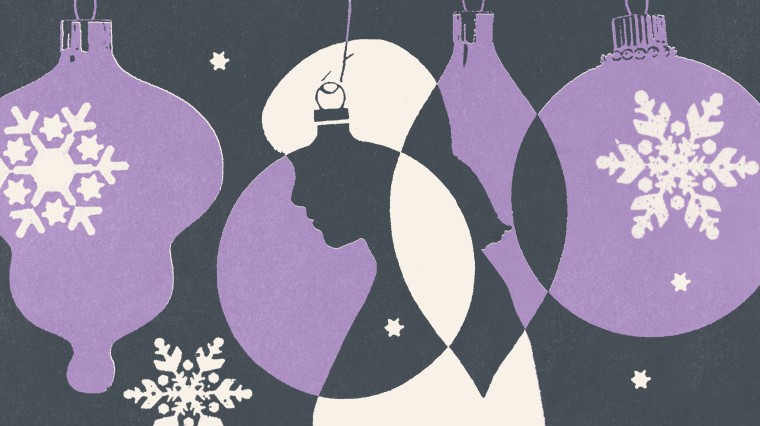It’s not unusual for many Americans to spend a lot of time alone — more than a quarter live by themselves, and more than a third of those who can work from home do so every day, surveys have found.
Add food delivery and online shopping to the mix, and you might never interact with another human being in person for days, which can be fine if that’s what you want. But when does all that alone time turn into loneliness?
A recent study put a number on that question: People start feeling lonely when they spend more than 75% of their time by themselves, researchers reported in the December issue of the Journal of Research in Personality.
That sounds like a lot of solitary time, but it may be surprisingly common in real life. It amounts to engaging in less than four hours of conversation with others every day, says Matthias Mehl, Ph.D., co-author of the study and professor of psychology at the University of Arizona.
“My guess would be that way too many people don’t make that four-hour mark,” Mehl tells TODAY.com.
“Socializing is equally related to health and longevity as exercise, sleep and good eating … (but) we don’t know how much we socialize and how much we should socialize.”
For the study, participants wore a device that (with their permission) recorded brief audio snippets of their life several times an hour. When researchers analyzed the recordings, it allowed them to measure how many social interactions the participants had and how much time they spent alone.
The study found, on average, people talk with others for about 33% of their waking hours.
“So if you fall not too far below the mean — 25% versus 33% — you suddenly are at risk of your of alone time actually leading into loneliness,” Mehl says.
The problem is particularly acute for older adults. A lot of alone time among people over 65 most likely means loneliness, he adds.
But young people are suffering from a lack of meaningful connection, too.
No matter the age, feelings of loneliness can intensify around the holidays, says Jimmy Master, Psy.D., a clinical psychologist and director of adult behavioral health at Stony Brook Medicine in New York.
“It comes up a lot, even in patients who typically don’t feel lonely around the year,” Master tells TODAY.com.
“The holidays, for some people, are a fun time. But then for a lot of people, they’re not.”
Nation's first Ambassador to Loneliness
In November, New York Gov. Kathy Hochul appointed Dr. Ruth Westheimer as the nation’s first state-level honorary Ambassador to Loneliness. The 95-year-old sex therapist will “help address this critical component of our mental health crisis,” Hochul said in a statement.
“It is very sad that people are very lonely,” Westheimer told WABC-TV New York.
“Loneliness has taken over and people must admit it to themselves: ‘I’m lonely. I have to do something about it.’”
In May, U.S. Surgeon General Dr. Vivek Murthy began warning about an “epidemic of loneliness and isolation” harming people’s physical and mental health.
About half of U.S. adults reported experiencing loneliness even before the COVID-19 pandemic, which exacerbated the problem by forcing many Americans into isolation, Murthy noted in a statement.
People who lack social connection have a 29% increased risk of heart disease and a 32% increased risk of stroke, he added.
Adults living alone are at a higher risk of cancer mortality, a study published in October found.
Loneliness engages some of the same brain centers we have when it comes to feeling pain, Mehl says.
Both he and Master agree that describing the problem as an “epidemic” is accurate and praised the efforts of Vivek and Westheimer to bring attention to the issue.
“When you go to the doctor, your doctor measures your blood pressure, oxygen saturation, asks you how you sleep, asks you about your exercise," Mehl points out.
"But we’re not yet there that they also ask you: How lonely do you feel, or how is your social life?”
How to deal with being lonely
Being alone and feeling lonely can be two different things. If you want to spend time alone, loneliness might never be an issue, Master says. On the other hand, someone could be in a room full of people at a party “and still feel lonely because they don’t feel a connection to another person,” he adds.
People can even feel lonely in a marriage.
If you are feeling lonely this holiday season or at any time of the year, the experts offered these tips:
Reach out
Make contact with family, friends and acquaintances, and if you sense someone in your circle is lonely, call them or invite them over, Master advises.
“Other people are often yearning for their social connection as well. We’re not alone in that,” Mehl says.
Go where people are
Go for a walk, go to the grocery store, go to places where other people naturally gather and hang out, both experts recommend.
Volunteer
Volunteering two hours a week can help ease loneliness, a 2018 study found. Find activities where you feel a sense of meaning and purpose, and connect to your interests.
Do a bit of social snacking
Interactions with strangers don’t come easy to us, but they can be surprisingly uplifting, Mehl says. Such conversations with people who sit next to you on the plane or are in line in front of you are called social snacking.
“We often shy away from them because we fear the other person doesn’t want to talk. We fear we don’t find an exit strategy once we start a conversation,” Mehl notes.
“But when it happens, we often feel better afterwards, better than we would have anticipated. … So talk to a stranger.”

